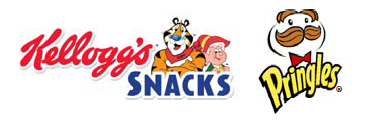Kellogg ordered to revise misleading sugar claims

The website suggested sugar “gets a lot of bad press” and listed under the heading “THE FACTS FROM EXPERTS” claims from scientific studies that purported to show no health risks associated with sugar.
However, ASA ruled that Kellogg had left out some crucial detail.
ASA decision
“We considered that Kellogg's had overstated the certainty of the experts' conclusions, and in relation to some health conditions had failed to state important caveats, particularly in relation to obesity.”
“We therefore concluded that the claim was misleading,” it said.
Kellogg claimed it had used credible scientific evidence to back up its claims including a 1998 report on Carbohydrates in Human Nutrition from the Food and Agriculture Organisation (FAO) and the World Health Organisation (WHO).
It has since removed the section headed “Sugar & Health” from its site.
Obesity claim
Kellogg had relied on the literature review ‘Is Sugar Consumption Detrimental to Health? A Review of the Evidence 1995-2006’ which said that even when sugar intake was “pushed to extremes there were few apparent disadvantages for weight and metabolic syndrome”.
However, Kellogg had failed to mention that the review also said there were links to cancer and dental problems.
The ASA added that Kellogg had overstated its conclusions by falling to refer to a potential link between sugar-sweetened beverages and obesity as reported in other studies.
Disease development
Kellogg was also deemed to have overplayed evidence suggesting no link between sugar intake and development of diabetes and cancer.
The literature review for example said that an association between sugar and colorectal cancer could not be ruled out.
ASA added that Kellogg had also implied with absolute certainty that sugar did not cause behavioural problems in children. It had used no qualifying words, which was considered misleading.
Kellogg had also claimed that the FAO and WHO report said eating sugar led to health benefits.
The ASA said: “We noted the report emphasised that dietary carbohydrates should come from a variety of sources and did not state that sugar in particular was beneficial to health.”
Kellogg was found in breach of rules 3.1 and 3.7 of the CAP code and has been told to revise its claims.






